The United States Bureau of Labor Statistic recently released its 2014 report. Hmm…Statistics? Ratios? Demographics? It doesn’t sound like a spellbinding, can’t-put-it-down novel, does it? Fortunately, there are people who find data and statistics intriguing, capturing those numbers and into meaningful information that can be used to bring problems to a solution.
Here are some highlights from the report:
-In 2014, 17.1% of persons with a disability were employed
-A person with a disability is three times more likely to be over age 65 than a person without a disability
-Unemployment among persons with disabilities is two times higher than the general population, regardless of education
-33% of workers with disabilities who are employed only work part time part time
-A person with a disability is more likely to be self-employed than the general population
-Older workers with a disability are less likely to be employed or find gainful employment
-Nearly 8 out of 10 people with a disability are not in the work force at all, compared to 3 out of 10 people not in the work force from the general population.
(Unemployment includes people who are actively seeking work. Those not in the work force are not actively seeking work or do not wish to have a job.)


The information may be something you had already observed or thought to be true, but now there are numbers, facts and data to back up what you already inherently knew. The numbers tell us to what scope our instincts are actually right or wrong on the matter.
A disability doesn’t have to mean exclusion from the world, the economy and living the life God created you for to its fullest possibilities. It may mean changing the way you approach work and daily tasks; it may demand an entirely different line of work, but work nonetheless. We are all created for work; we all have tasks to do whether the task be mending jeans or building spaceships. We all have purpose.
Disability Work Tools (DWT) is just one on the list of businesses and organizations that can help people living with disabilities retain purpose or find new purpose in life. Tools and technology found at DWT can help people keep working!
DWT is on a mission to keep changing those statistics for the better through each person reached.
Providing a living and a family economy are satisfying and essential components to life with or without a disability. How more true is that when a person with a disability can continue to provide financially for self and family, in spite of the circumstances surrounding the disability?
